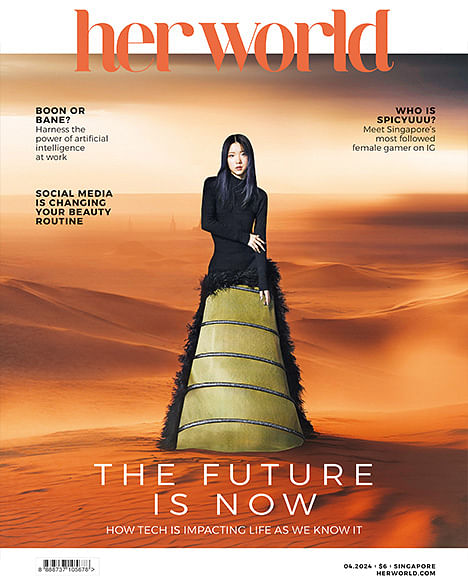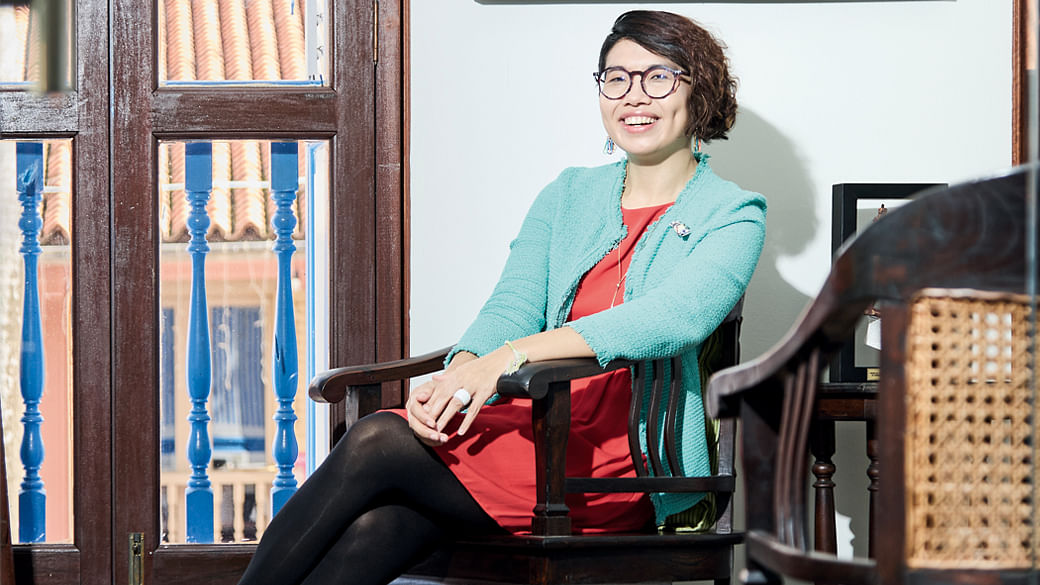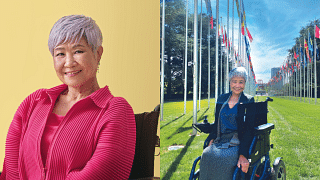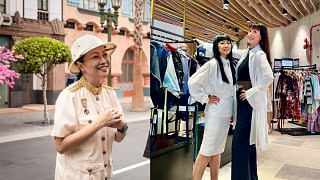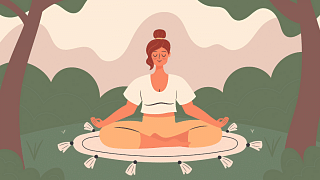For someone with a job that centres around brokering peace, the everyday life of Wu Ye-Min, who works in one of the world’s most influential conflict mediation organisations, is currently quite chaotic. She has just returned from a family holiday abroad (it’s one of the 40 overseas trips she took in 2022, though they were mostly for work); her two children, eight and 10, have just started school; and she has barely even had time to settle into her office, though it has already been over a year since she took over from her predecessor.
Ye-Min joined the Centre for Humanitarian Dialogue (HD) in January 2022 as the regional director for South and Southeast Asia. The non-profit organisation specialises in resolving armed conflicts around the world through mediation and discreet diplomacy.
“HD is what we call ‘the boots and the suits’. We go on the ground to understand the situation, complexities, and needs, and thereafter we take that back up directly to the governmental or official level. This means that whatever that’s being negotiated becomes more meaningful and sustainable,” she describes.
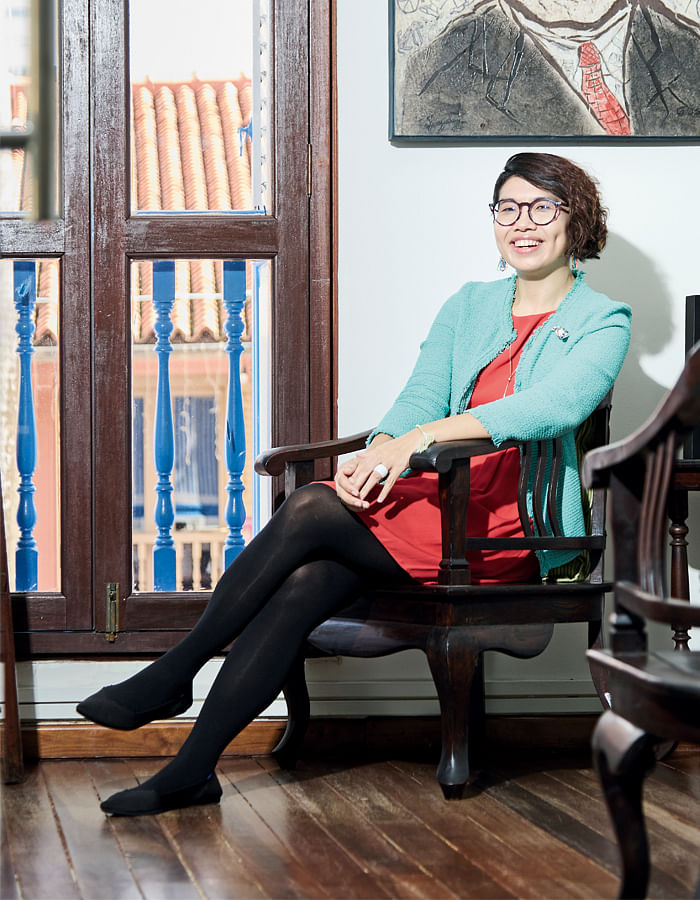
It’s not exactly uncharted waters; prior to HD, Ye-Min had spent 15 years as a diplomat representing Singapore at intergovernmental organisations such as the United Nations (UN), the World Intellectual Property Organisation, and the World Trade Organisation (WTO). Having sat at countless tables with multifarious issues at stake, she is all too familiar with the chaotic nature of negotiations.
One of the tricks to a successful negotiation is warmth, she reveals. “If you’re meeting someone new, you treat the person as a human being beyond the flag or organisation they represent. Exuding warmth helps them to understand that you are also a human being, and that’s where the connection begins for diplomacy to happen.”
If you’re meeting someone new, you treat the person as a human being beyond the flag or organisation they represent.
Wu Ye-Min
As the saying goes, honey catches more flies than vinegar. “After the trust has been built, that’s when you go into the more difficult and complex issues. We’re not, in any way, saying what they do is right, but we believe that dialogue can be the solution to bring peace rather than more fighting.”
Taking the time to build trust between all the involved parties is especially important as she does not travel with an assigned security detail. A simple misunderstanding could threaten her safety. “Of course, we do take precautions where possible,” she shares. “But the fact of the matter is that much of our work can’t take place from a nice, air- conditioned office. We have to be on the ground meeting with the people, as that’s where the dialogue happens.”
We have to be on the ground meeting with the people, as that’s where the dialogue happens.
Wu Ye-Min
And because of the trust she has built amongst so many parties, it has also formed relationships that she cherishes. “Having been posted to the UN and the WTO previously as a diplomat, I essentially got to meet at least one person from each country in the world.” This is helpful, especially when “there are times where I’m unsure of the situation in the country,” shares Ye-Min.
Destress as defence
That said, the power dynamics of mediation and negotiation in high- pressure – and occasionally hostile – environments can take its toll. Whenever she has the downtime, Ye-Min makes it a point to carve out a moment to relax. Music is a key way for her to destress, and she describes playing the piano and drums as cathartic.
Spending quality time with her loved ones is also important. “When I’m out there, it’s very intense and I enjoy it. But when I come home, sometimes all I want is family time,” she shares. “I just want to hug my children and spend time with them. This downtime also allows me to recentre myself and to process what has been happening.”
Travelling regularly for work and spending so much time away from her children is difficult, admits Ye-Min. “In this day and age, women wear so many different hats. I’m not just a mediator; I’m also a mother, a daughter, and a wife. The working mom’s guilt? It’s honestly something that I am still trying to get through.” Noting that it “takes a village to raise children”, she credits her support system for keeping her grounded. “I am very grateful for my friends as well as my family – especially my husband, who quit his job to dedicate his time with the children so that I can have a peace of mind when I travel or when I’m in an intense negotiation.”
The working mom’s guilt? It’s honestly something that I am still trying to get through.
Wu Ye-Min
Ye-Min is a self-declared “negotiation junkie”, and that leads me to wonder: does she find herself negotiating conflicts at home? She laughs. “Well, with my children, there’s a lot of natural sibling bickering with each other. But there’s also a lot of love. When they squabble, I tend to tell them to focus on gratitude and think about how we can help others rather than focusing on smaller minor issues.” With her husband, she makes sure to create “a regular channel for honest conversations”. “I would say that he’s very patient with me,” she shares. “We’ve started going for 30 minute evening walks where we can talk about our issues, allowing us to deal with these matters rather than them building up.”
Creating a safe space for open dialogue also applies to conflict resolution on the ground, she points out. “We have to get creative. Sometimes, [to negotiate a successful outcome], it’s about creating a relaxing environment where the parties are able to speak frankly.” When they feel at-ease, they’ll be better at speaking their truths, shares Ye-Min.
Women in diplomacy
To this day, the diplomatic scene remains largely male-dominated. A UN report highlighted that while women are often actively engaged in mediation processes at community levels, their expertise is often overlooked when it comes to formal, high-level peace initiatives.
As one of the few female voices in the room, Ye-Min agrees that “more women need to be part of the peace table”. After all, women are often the ones who are disproportionately affected by conflicts. “Sometimes, a woman can change up the dynamic – especially when it’s among a group of men with arms – by addressing a different viewpoint to the discussions,” she points out.
Of course, having more women in the room can’t simply be a symbol of tokenism, says Ye- Min. “There’s a difference here: are they simply diminished to a role of producing the papers and typing meeting notes or are they the ones who are at the table, negotiating and mediating?”
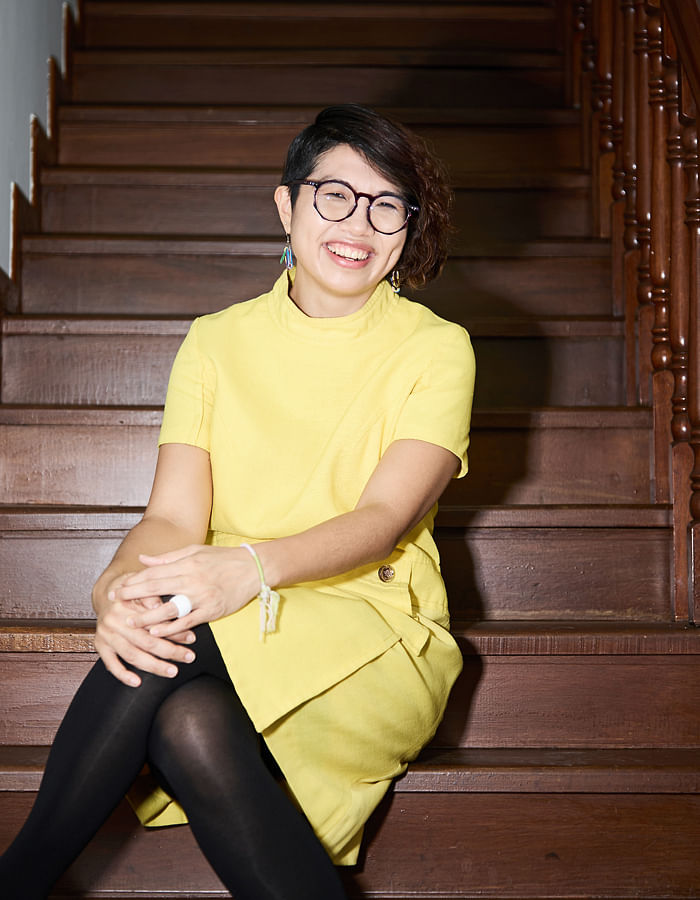
She underscores the value of mentorship when it comes to adding more female voices in the space. “When I volunteered at UN Women after college, I got to know three amazing women leaders: Melissa Kwee from the National Volunteer and Philanthropy Centre, Claudine Lim from AIDHA, and Saleemah Ismail from New Life Stories. I found my voice through seeing them do what they do, and through their mentoring and advice.” For this reason, it’s important for her to pay it forward. She does so through mentoring youths, whom she firmly believes can create change.
Her passion for empowering the younger generation was sparked when she first stumbled across a relief teaching role at Raffles Girls School (RGS), where she had graduated from. “I studied international relations for college at Johns Hopkins University in the United States, but when I returned back to Singapore, I wasn’t sure what I wanted to do straightaway. I was passing by RGS, and I thought I could head in to check if there were open positions for relief teachers whilst I figured out my next steps.”
The school did, in fact, have open positions, and Ye-Min ended up becoming a contract teacher for two years. While she eventually left for a role in the Ministry of Foreign Affairs, she still enjoys teaching students.
These days, she often conducts talks and workshops on negotiation and leadership in diplomacy for the youths to share wisdom she’s accrued over the years with the rising generation of talent. “I believe in helping others to reach their potential and grow to do what they want to do. Additionally, by putting better negotiators at the table, we can produce better outcomes.”
By putting better negotiators at the table, we can produce better outcomes.
Wu Ye-Min
Brighter days ahead
What drives Ye-Min is gratitude. “In Singapore, we are blessed with peace and stability. My personal take is that if we have the capacity and resources – and I don’t just mean money, it could be time or energy – we should be looking at how we can give back to the region.”
When it comes to promoting peace, one doesn’t necessarily need complex negotiating skills. She points out that it could start from within our communities, and it could be as simple as lending a listening ear to a friend. “It’s really about active listening and understanding what the person you’re speaking to might need and what are the issues that are concerning them. And then finding ways to help if that’s possible.”
Ultimately, we all have a part to play in peace building and conflict resolution, no matter how small. “I really do feel that you don’t have to be a superhero to bring about change. All of us can play a role as a peacemaker.”
What is the Centre for Humanitarian Dialogue?
Since 1999, the Centre for Humanitarian Dialogue (HD) has been working behind the scenes to bring peace and limit human suffering caused by war. Working at multiple levels around the world, HD mediates ceasefires, fosters dialogue between hostile parties, and opens the way for humanitarian assistance in conflict zones. As an impartial, neutral and independent organisation, HD engages with political actors, armed groups and other influential parties to achieve inclusive, sustainable peace agreements.
In recognition of its work to prevent and resolve armed conflicts through mediation and discreet diplomacy, HD was awarded the Carnegie Wateler Peace Prize in 2022. In South and Southeast Asia, Singapore serves as the regional headquarters for HD. Within the region, HD’s work includes supporting the peace process on the southern island of Mindanao in the Philippines and in Myanmar, as well as reducing tensions and mitigating conflict around the Bay of Bengal and the South China Sea.
PHOTOGRAPHY Lawrence Teo
ART DIRECTION Adeline Eng
HAIR & MAKEUP Aung Apichai

